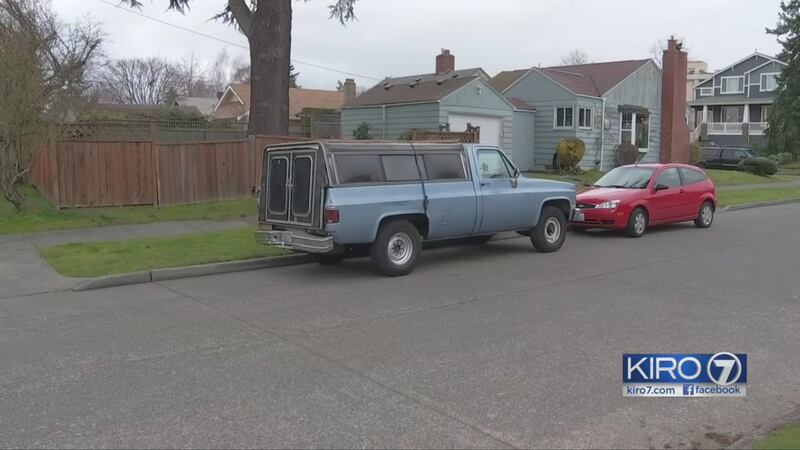A Seattle man is celebrating tonight after a judge ruled that the truck he has been living in is his home and the city can't sell it to pay for a hefty parking ticket and fines. The ruling could affect hundreds of homeless people living all over the city in their vehicles.
Scroll down to continue reading
More news from KIRO 7
- Teen killed in fall at Rattlesnake Ledge
- Family of man murdered in Redmond pleads for help finding killer
- Child sex offender serving more than 300 years walks free on 'technicality'
- Bonney Lake police officer, Air Force veteran dead after avalanche
- Washington becomes 1st state to approve net-neutrality rules
The judge's ruling is based on the 123-year old Homestead Act that says the government can't force anyone to sell their home to satisfy debts. This is apparently the first time anyone has successfully argued that a vehicle can be a home.
Steven Long has lived in a truck on the streets of Seattle since 2014. But last year, when his truck was parked on Poplar Street South for five months, the city impounded it. He said living outside took a toll.
"I had eight colds that year and pneumonia, to boot," he said. "And I normally have only one or two colds a year."
Long is not alone. A 2017 survey by the nonprofit All Home counted more than 5,400 people living on Seattle's streets. Nearly half of them were living in their vehicles.
"It's one of the first big victories in the area of vehicle residency in particular," says Columbia Legal Services lawyer Ann LoGerfo.
LoGerfo and Long's legal team argued that state law says a home cannot be sold to pay one's debts. Long's truck, the judge determined, is indeed his home, and couldn't be held for the $900 impound feeds he owes.
"So the impound system where there's an impound and you can't get your vehicle - and here a house - out until you pay pretty hefty fines violates the homestead act," LoGerfo said.
LoGerfo said that this ruling means a vehicle is to be treated like a home.
The city of Seattle argued that impounding Long's vehicle did not constitute a "forced sale."
Moreover, the courts "have consistently held that there is no constitutional right to housing."
The city attorney would not talk on camera but issued a statement: "The City disagrees with the trial court's ruling and is evaluating its options."
Long hopes the ruling will help others living in their vehicles.
"Hope they would never have to see or do what I had to live through," he said.
The city may still ticket anyone who parks a vehicle for more than 72 hours. But if it is someone's home, they may not impound it.
The city can appeal.
Cox Media Group








